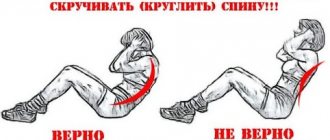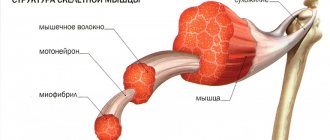“Chief academician Ioffe proved: cognac and coffee will replace sports and prevention,” Vladimir Vysotsky once sang. True, the true meaning of the song lies on completely different planes, but if we take it literally, the great bard was absolutely right: playing sports significantly improves the quality of life. Any physical activity is beneficial for a healthy body. What if a virus creeps up? What to do: keep the usual rate of exercise, reduce the intensity of physical activity, or completely abandon it?
Missed a day of training
If a person has two workouts per week in the plan, then missing a day of training means not completing half of the training plan.
Let's say a person trains on Tuesdays and Fridays. And instead of training, this man went to the theater for the premiere. Training is twice a week, and the premiere is once every six months.
But I can’t train on Wednesday because I speak English, which is also very important.
You can train on Thursday, but everywhere they write that you cannot train two days in a row.
If you have a choice of working out once a week or two days in a row, then it is better to choose two workouts in a row.
Of course, it will not be possible to maintain the intensity of training for two days in a row, but it is better to complete the plan for the number of training sessions with a decrease in intensity than to maintain intensity by reducing the volume of training.
What is the volume and intensity of training is written in detail in the Size/Quarter manual.
Is it possible to train with a fever?
Exercising at a temperature of 37° and above, as well as with a sore throat, is prohibited. A temperature of 37° is already a signal that the body is experiencing increased production of protective bodies that help the immune system fight viruses and bacteria. All the body’s forces are aimed specifically at fighting infection.
When a person suffers from cold viral infections, it is very important not to make mistakes in treatment and in every possible way to help the body recover.
To do this, you need to adhere to several unspoken rules:
- Even if there is no appetite, you need to eat regularly throughout the day in terms of proper nutrition, so as not to weaken the body even more. If you do not violate your diet and diet, a common cold will go away 2 times faster.
- It is very important to drink enough liquid. During illness, it can be increased to 2.5-3 liters per day. This allows for faster recovery.
- To avoid catching a cold and overcome illness in the early stages, you should eat garlic and onions. These plants contain phytoncides, which help destroy the maximum number of pathogenic bacteria. They also provoke copious secretion of mucus and tears, which eliminates viral elements from the mouth, sinuses and eyes.
- During a cold, you need to take vitamin C (1-2 g/day). Complex vitamins will also help improve your health.
- To destroy all acute respiratory viral infections, Cycloferon is considered a very effective remedy. Despite the high cost, its effectiveness is beyond doubt. If you take it on time, then after eliminating the main symptoms you can play sports, but without fanaticism.
- Ventilate the room regularly to prevent the accumulation of pathogenic elements. You can also purchase a UV lamp and leave it on for several hours every day.
Missed training due to a cold
There are different types of colds: there is a slight runny nose, and there is a temperature above 38 degrees.
If the temperature is above 38 degrees, then the doctor himself will allow you to skip not only training, but also work. If the doctor does not issue sick leave for work, then you can go to training with a decrease in the intensity of the training.
Training with reduced intensity has a therapeutic effect. This type of exercise makes colds go away faster than tea with jam, because light exercise causes myogenic leukocytosis - it increases the number of leukocytes in the blood and improves immunity.
The intensity of training during a cold should be reduced by 30-50%, depending on the severity of the cold.
Is sport always the key to health?
Regular morning jogging, fitness, swimming and other sports not only improve physical fitness, but also help strengthen the body's resistance to various diseases, including colds. However, is there any reason to continue exercising if there are signs of illness? In this case, such motives as the desire to become slimmer, fitter and more attractive fade into the background. Being healthy is still a priority.
How do opponents of training during the onset of illness justify their views?
Risk of complications
A number of doctors are of the opinion that any training during illness will bring absolutely no benefit. They justify this by the fact that even a healthy person is undesirable to go out into the cold air or visit crowded places immediately after intense physical activity due to the fact that the body’s defenses are somewhat weakened at this time. Whereas with a cold, the immune system is already suppressed and there is a high probability of complications.
Malaise is a reason to cancel training
Action of the hormone cortisol
Colds lead to a decrease in the level of anabolic processes in the muscles and in the body as a whole. Along with this, the production of cortisol increases. It is a catabolic hormone that can break down muscle tissue and increase blood glucose levels. In addition, it promotes the accumulation of fat mass. In itself, this hormone, the production of which is activated during stress, hunger, overwork and illness, is not at all harmful; on the contrary, it is designed to mobilize all nutrients. In the future, muscle proteins broken down into amino acids will serve as building materials for the restoration of the body. However, exercise during a cold can negate all the beneficial effects of cortisol, and all exercise will only have the opposite effect.
Danger of spreading infection
Another risk is mentioned when training during illness - during the inflammatory process, the lymph nodes enter the fight against microbes and bacteria. They stand guard, taking the blow and preventing the virus from spreading throughout the body. Intensified training will allow the infection, along with the blood, to penetrate into other organs, and the consequences can be very serious.
Skip a week of training
I have conducted about 50 thousand personal training sessions in the gym and have rich statistics of changes in people’s bodies without any claims to results, because people go to a fitness club to see a personal trainer not for results, but for communication. This is an unpleasant truth of life that I was a part of and for which I am ashamed.
As a result of these statistics, I discovered the following facts. If a person trains at least once a week—50 workouts a year—then he does not get worse.
For people without any claims to results, there is good news: if a person trains 35 times a year - once every 10 days, then he also does not get worse.
Therefore, when a person misses a week of training, it’s not a big deal if he has at least 150 training sessions a year. Missing a week of training out of 50 training weeks is no big deal. But who counts the weeks of training? Who can even keep a workout diary for a whole year?
Second case
Now let's take a case where there is a slight malaise and local symptoms:
- nasal congestion,
- dry throat,
- sore throat
- rare mild cough.
It seems that you won’t even consider these signs to be a cold, and it seems that you don’t need to take sick leave.
But, believe me, the body doesn’t care whether it’s locally or the whole body has already become involved, the entire immune system, it still throws all its strength and energy into supporting the immune system and further recovery.
Whether it’s a sore throat or already developed symptoms, in any case, the body needs strength.
In this case, it is advisable to do the same:
- temporarily stop your workouts and exercise routines;
- give your body more rest so that it can spend its energy on fighting viruses and recovery.
After you feel better, you feel that your runny nose has decreased, your cough has gone away, even if your throat is still a little sore, you can calmly begin your activities, making them a little shorter.
Do not perform training for 40-30 minutes, but at least start with 15 minutes and so over the course of 2-3 days gradually reach full-fledged training.
And then you will not suppress your immunity, your strength and give your body time to recover.
Do not forget that even if you have a cold, try to recover as much as possible using the means at hand, and not through medications. This:
- healthy sleep;
- a gentle regime is required, preferably bed rest, especially if the temperature is high;
- drink more ascorbic acid, eat lingonberries, cranberries, make fruit drinks out of it;
- and get a good night's sleep and recover.
Believe me, this will give good results. I wish you good health! So that you always feel great! And they didn’t miss their workouts!
The information in the articles is for general information purposes only and should not be used for self-diagnosis of health problems or for therapeutic purposes. This article is not a substitute for medical advice from a doctor (neurologist, therapist). Please consult your doctor first to know the exact cause of your health problem.
I will be very grateful to you if you click on one of the buttons and share this material with your friends










